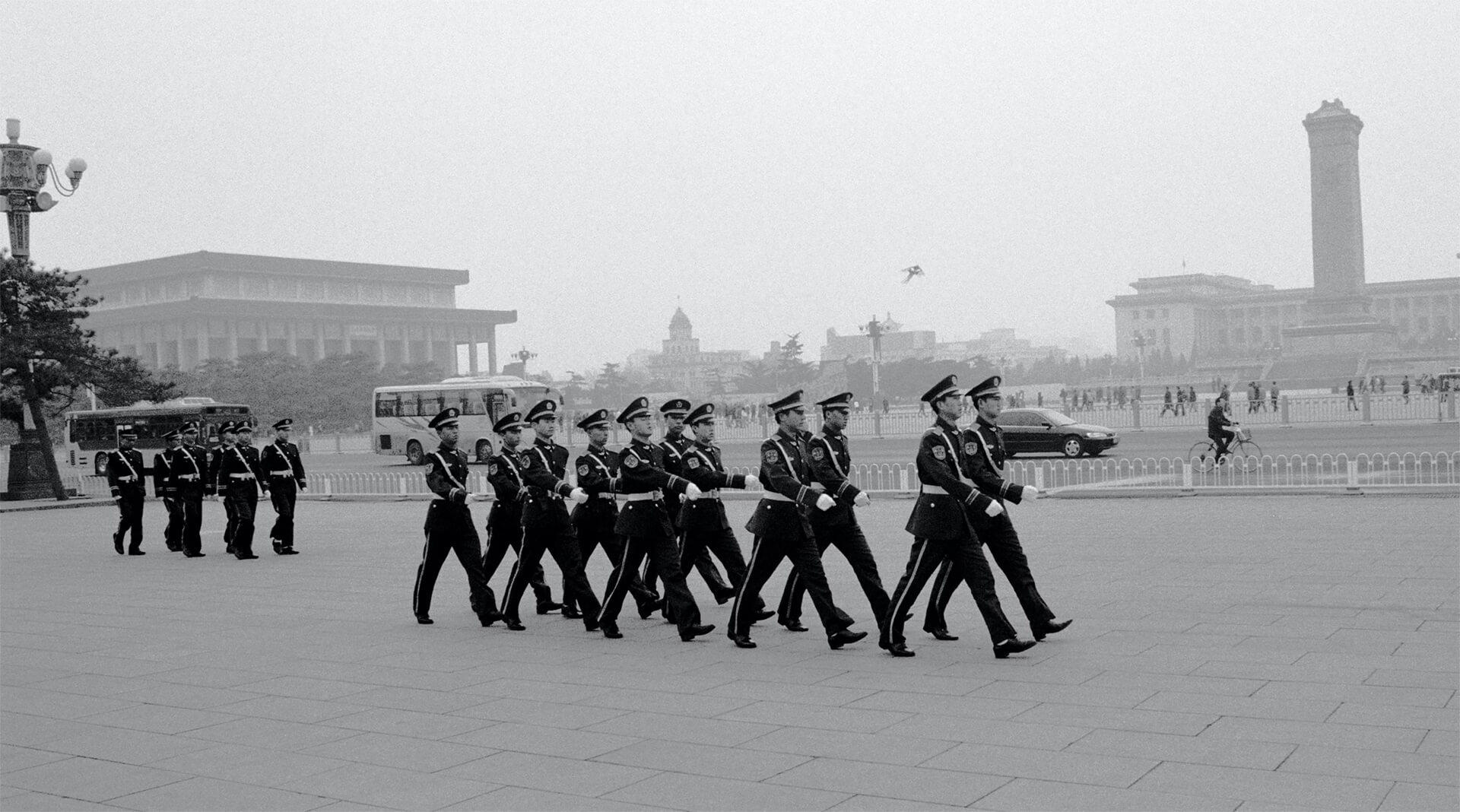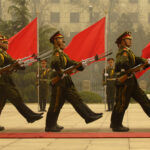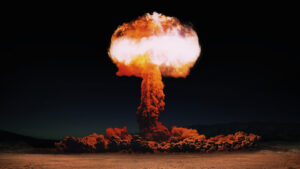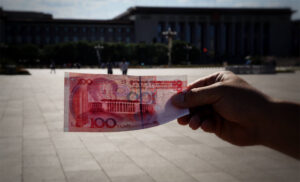
The Accidental Superpower: Ten Years On
With a new “10 years later” epilogue for every chapter, comes an eye-opening assessment of American power and deglobalization in the bestselling tradition of The World is Flat and The Next 100 Years.
Xi Jinping is doing his best Darth Vader impression and has the Chinese military in a force choke. After purging the system of anyone who can think, all that remains is the shell of a Defense Minister (now a press secretary for military diplomacy) and the “real” decision makers – the Central Military Commission – chaired by none other than Xi himself.
The Chinese military has remained largely untouched by Xi’s purges over the years, but this last round sought out any political players and corrupt personnel within the military. So, anyone with two brain cells, overly ambitious or competent, has been “relieved of duty.”
The Central Military Commission, which is now comprised of yes-men and sit-there-and-smile-men, will likely lose any semblance of military preparedness to prioritize ideological adherence. I’ll let you judge what that means for the future of the Chinese military…
Here at Zeihan On Geopolitics we select a single charity to sponsor. We have two criteria:
First, we look across the world and use our skill sets to identify where the needs are most acute. Second, we look for an institution with preexisting networks for both materials gathering and aid distribution. That way we know every cent of our donation is not simply going directly to where help is needed most, but our donations serve as a force multiplier for a system already in existence. Then we give what we can.
Today, our chosen charity is a group called Medshare, which provides emergency medical services to communities in need, with a very heavy emphasis on locations facing acute crises. Medshare operates right in the thick of it. Until future notice, every cent we earn from every book we sell in every format through every retailer is going to Medshare’s Ukraine fund.
And then there’s you.
Our newsletters and videologues are not only free, they will always be free. We also will never share your contact information with anyone. All we ask is that if you find one of our releases in any way useful, that you make a donation to Medshare. Over one third of Ukraine’s pre-war population has either been forced from their homes, kidnapped and shipped to Russia, or is trying to survive in occupied lands. This is our way to help who we can. Please, join us.
TranscripT
Hey everybody. Peter Zeihan here coming to you from Colorado. We’re going to talk about some things that have gone down in China as regards to the military. Now there are a lot of folks who like to stress about the Chinese military and who are convinced that if we ever do get into a real fight with the Chinese, that we have our asses handed to them.
I’ve never been part of that crowd, mostly for an equipment point of view. They’ve got two carriers that have never seen conflict. We’ve got 20, which have seen lots of fights over the last several decades. Most of their ships can’t sail more than a thousand miles from shore. And that assumes that going in a straight line and no one’s shooting at them and they’re going slow to say fuel.
Whereas our fleet is fully bluewater capable. But I’m not going to talk about the technical aspects of the military today. But it said the leadership assets, the functional, the structural stuff. Now, in the United States, we have a defense secretary who’s in formal command of the forces and who reports directly to the president as a member of the cabinet.
So orders go from the president to the secretary of defense to the troops. That’s not how it works in China. In China, the defense minister does not have operational control over the military or over policy. They’re more of a glorified press secretary that deals with military diplomacy. And they are, as a result, the interface with our folks. But those are the decision makers.
The decision makers sit on the Central Military Commission, which is chaired by. Now, if you go back a few months, the Chinese government has been seeing a series of purges for all the not just a few months for 14 years now. And it claimed the defense secretary over this past summer and it took a while to happen. The guy basically vanished, didn’t show up at the office, wasn’t in first at all for two months before he was formally disposed.
And it’s only in the last couple of weeks that we finally have a new defense minister, a guy by the name of Dong Zhu, and he’s a an admiral. But again, the defense minister position in China is not all of that. The real decision making power lies elsewhere. Now, the issue that we’ve been seeing in China as regards to these purges has been robust.
It’s about JI trying to tighten his grip on everything. And over the course of the last few months, he’s fired 20 top level people, 12 in just the last two weeks In order to put his stamp on the military. You have to look at this from his point of view. When he came in, China was one of the most corrupt countries in the world.
And also it was one of the more centrally disassociated the Chinese Communist Party industry has tried to be very centralized and to all decision making to flow through Beijing into Xi personally. And China is a country of, you know, 1.3 billion people. And that requires a lot of hands on government at the regional and the local level. And when you’ve got decision making it the regional and local level people make decisions at the regional and the local level.
And that means that she would rather have them singing his praises rather than doing the dirty work of day to day governance. So he submitted a series of purges both to go after the corruption and against his political competition, perceived or otherwise. And over the next 12 years, basically gutted the system of anyone who might stand against him by going against anyone who might stand up.
And so whether it’s in local government or state government or in academia or business or in the federal bureaucracy, it has been purged of anyone with any ambition and any competence. The reason that the military was left out of those first several purges is because it was strong and because these people had guns. You deal with that last.
And now he’s starting to deal with that as well. And so a lot of the purges we have seen are going after either political players or folks that are actually guilty of corruption. And so, you know, about 20 so far, including a recently appointed defense minister ticked by, none other than Xi himself. Now, remember that Central committee that does the military planning and is now stacked just like the Chinese Politburo with incompetent.
Yes, man. Well, not even people who say yes, people won’t say anything because she doesn’t want to be bothered. So what we see now is starting to impose upon the military the same structural gutting that we’ve seen for everything else. China’s already gone from having a bureaucracy to one that doesn’t function at all because nobody wants to transmit information because they don’t know how she’s going to respond.
And now we’re seeing that in military activities as well. So is this good or bad? Well, it really depends upon who you are and where you care about and where you live. But think of it this way. In the old system, China’s military preparedness and capability was probably sharply limited by lack of expertise and by massive corruption, things like Russian style stealing of the funds.
Now, if she has his way, a third of the working hours of all the military will be spent reading texts written by Jingping about Xi Jinping, about how wonderful his using Peng is. Which one of those makes a better military? Not quite sure. It matters.








